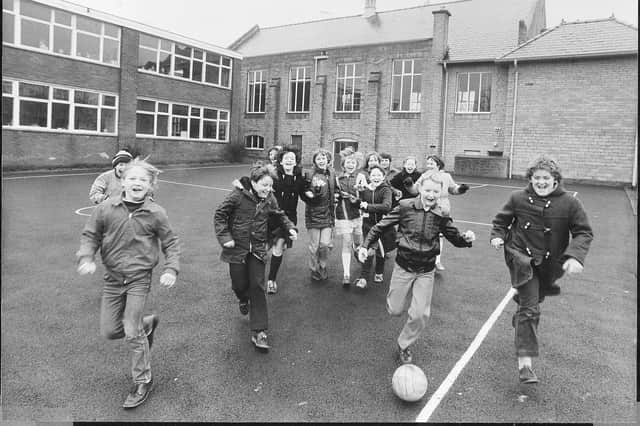If we're going to start tackling the anxiety crisis in our young people, we need to give them places to play first


There has been an explosion in children and young people exhibiting anxiety across our nation. Autism Union found, through a process of parental Freedom of Information requests and examining 9,638 cases, that over half of referrals to mental health services resulted in no immediate treatment, Basically, children and young people are not receiving the help they need.
What is also evident from these findings is that CAMHS received referrals more suited to other services when it came to children and young people without autism. One of the big problems is that they are left on ever increasing waiting lists which increases their anxiety levels. In some cases, children were told they would have to wait for 18 months but the reality was a wait of as long as three years. This wait made everything worse and led to the youngsters becoming withdrawn, isolated and not playing. This loss of play was shown to be hugely traumatic.
Advertisement
Hide AdAdvertisement
Hide AdThe research also focused on homeless children and young people whose increasing anxiety levels have been of particular concern. Described as the ‘ hidden homeless’, this group are technically homeless but not actually sleeping rough on the streets. As a result of being unable to play, children who are homeless are suffering from ever increasing anxiety and actually losing their ability to play. That, in turn is adversely impacting their emotional and mental well-being and impeding their development.
As if they haven’t enough to contend with, the children were also found to be suffering from depression, feelings of guilt, isolation, unhappiness and a ‘loss of agency.. Being unable to access physical spaces to play was especially tough for preschool children and created great developmental hardship.
Young people in temporary, cramped housing conditions - were unable to play or have friends over and many had no access to outside space. There are more than 130,000 children and 65,000 families in the UK living in temporary housing, a figure that has almost doubled since 2010. They range from people who are unable to pay their mortgages and those fleeing domestic violence, through to refugees and asylum seekers.
Lorenzo Dall’Omo, who has led research into this subject for University College London, said: “From the data gathered, it is clear that there is yet immense work to be done to tackle the problem of play in temporary accommodation.”
Advertisement
Hide AdAdvertisement
Hide AdPlay is integral to children’s psychological and physical development and wellbeing. Play, under the UN Convention of Children’s Rights (1989), is a human right for children and young people - yet across the nation they are being denied the opportunity to play.
Professor Monica Lakhanpaul, of UCL, said: “The crisis in temporary housing means most children have no space to play . This is a ticking time bomb that can have a direct impact on a child’s social interaction, physical development and mental health.”
There clearly is an urgent need for new and indeed existing temporary housing to not only give regard to play but to provide accommodation more suitable for play and for making local play facilities and opportunities more accessible. Play needs to be at the heart of how all housing is developed, delivered and managed.
Laurence Guinness CEO of The Childhood Trust , a a charity that seeks to combat child poverty, said: “Temporary accommodation can be toxic for children and should be treated as an urgent public health crisis. “
Advertisement
Hide AdAdvertisement
Hide AdOne in five children and young people in England aged eight to 25 had probable mental health challenges. The need for reducing waiting times is evident and deliberations on play should be of primary consideration. Politicians, central and local, have over many years now, taken their eyes off the ball when it comes to play. Children are not only losing out but actually suffering. This has to stop. More needs to be done to address the nation’s play deficits- everywhere!
Comment Guidelines
National World encourages reader discussion on our stories. User feedback, insights and back-and-forth exchanges add a rich layer of context to reporting. Please review our Community Guidelines before commenting.
